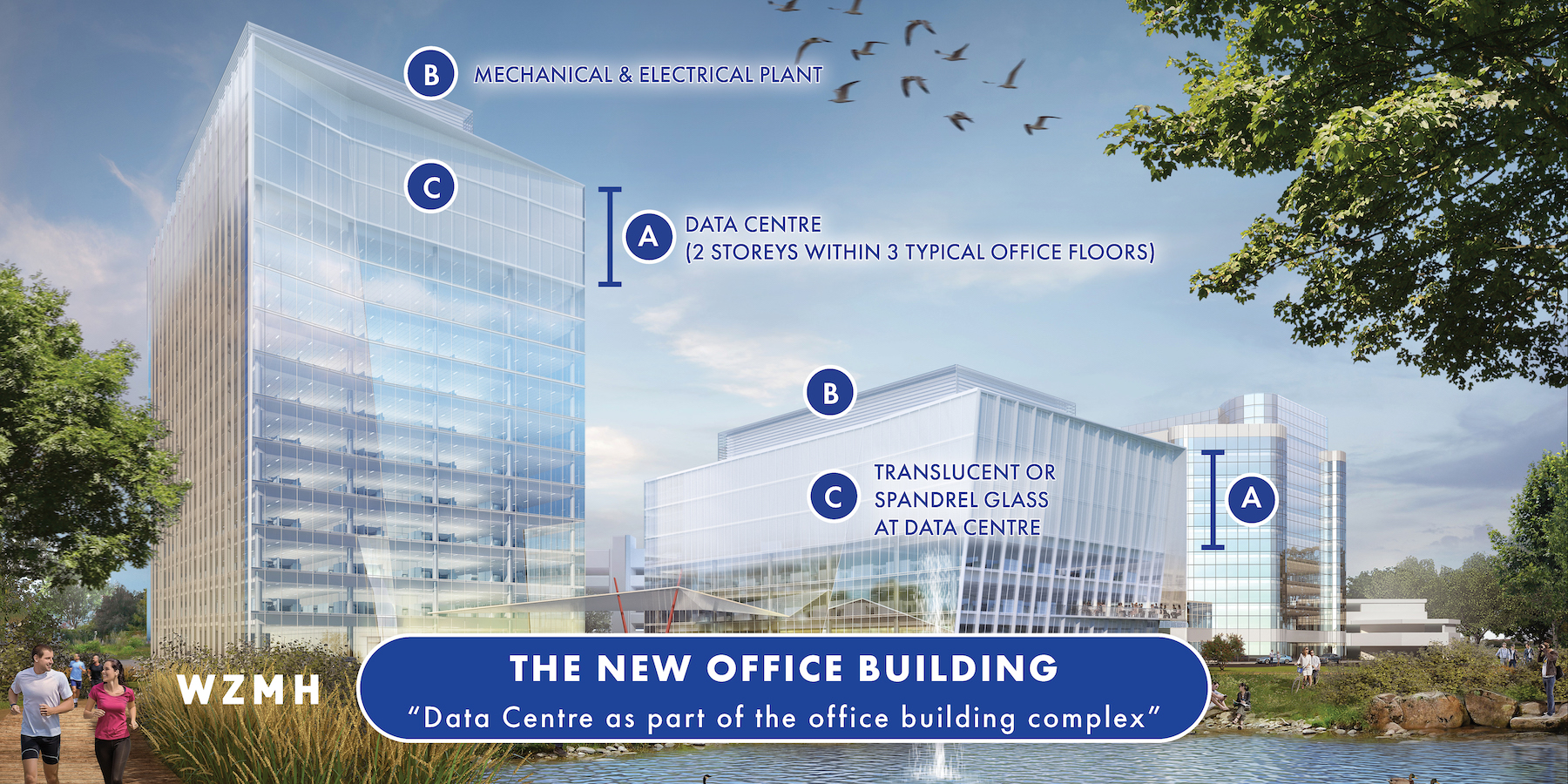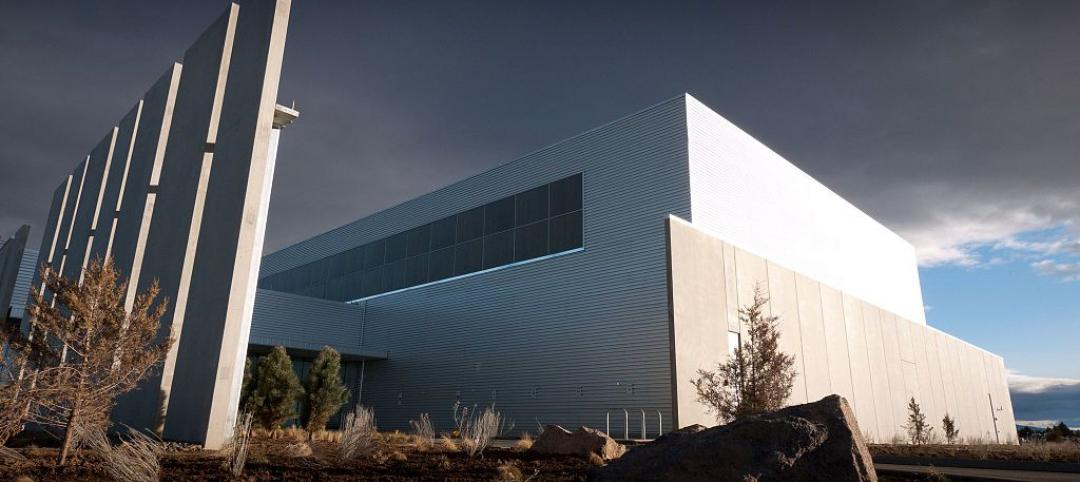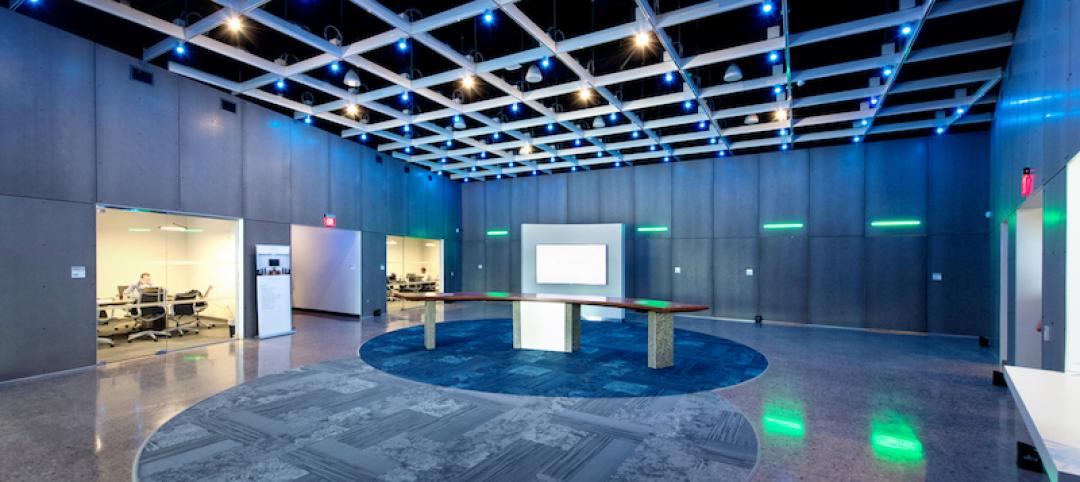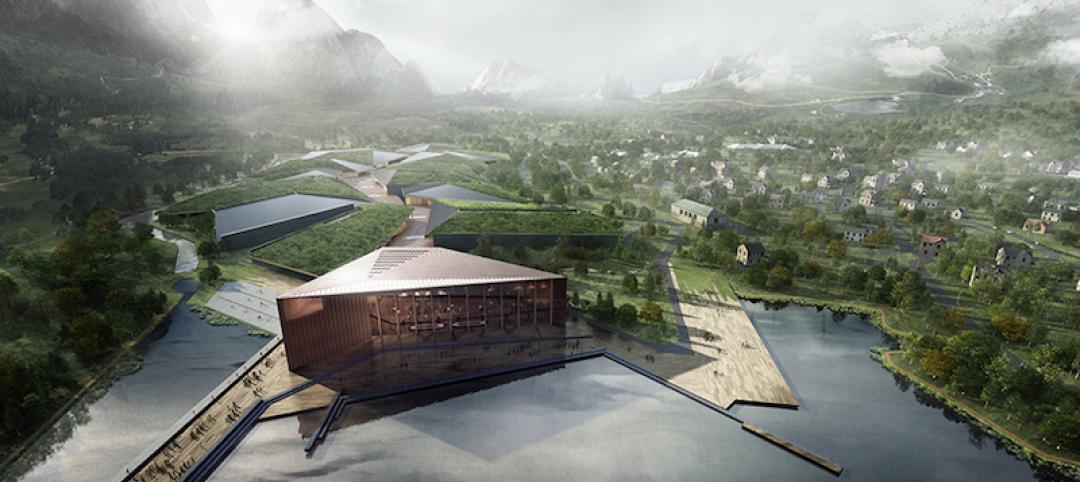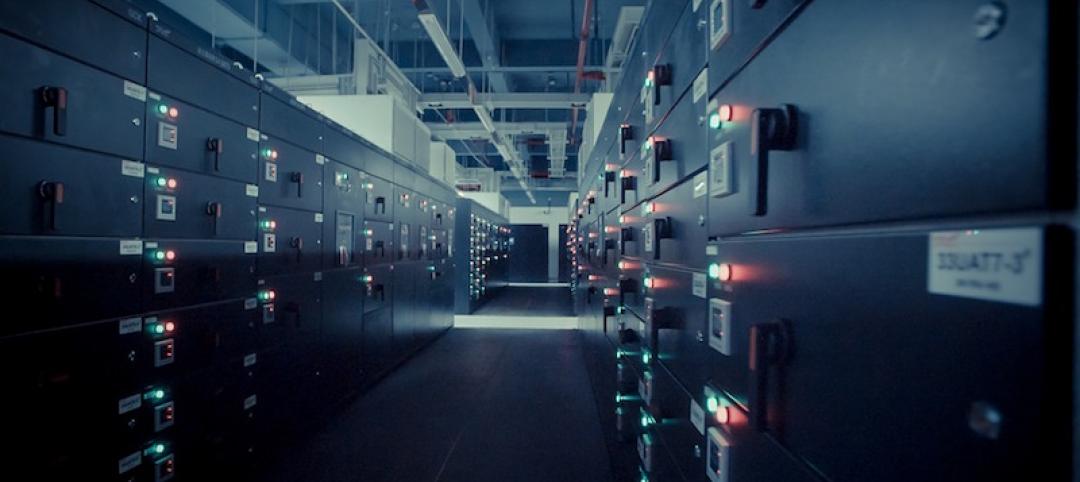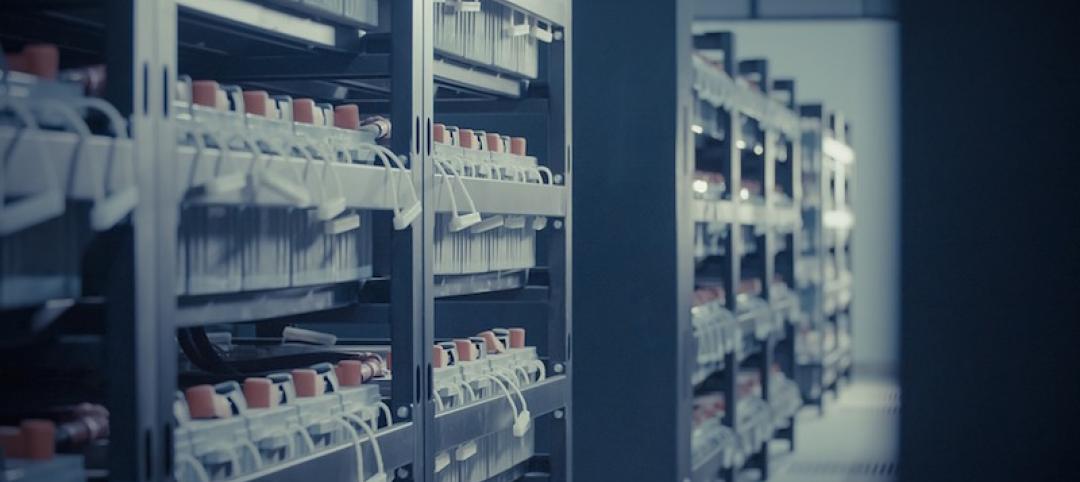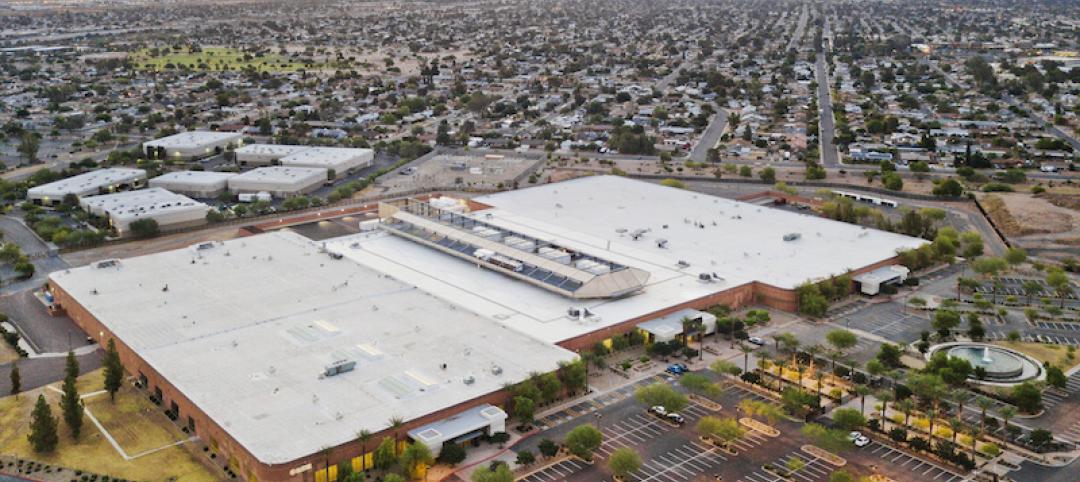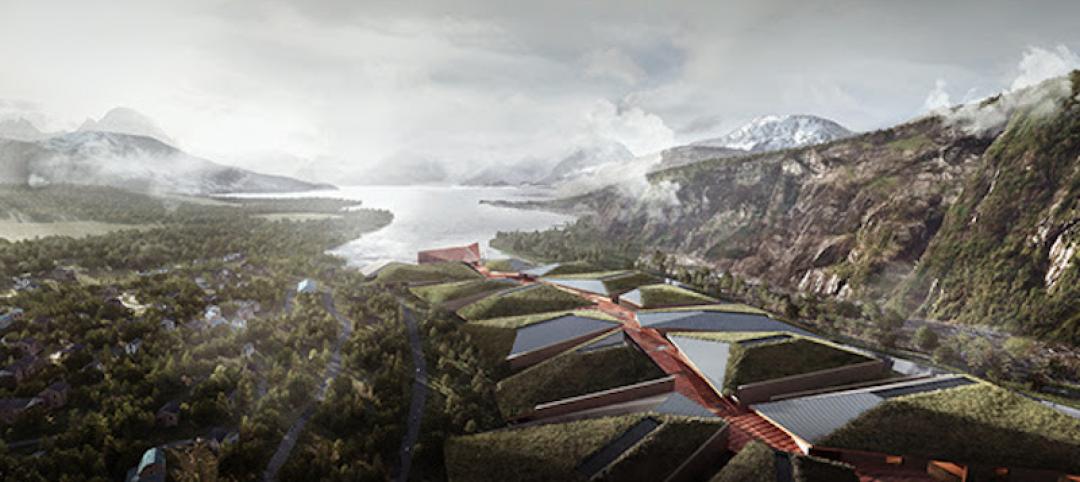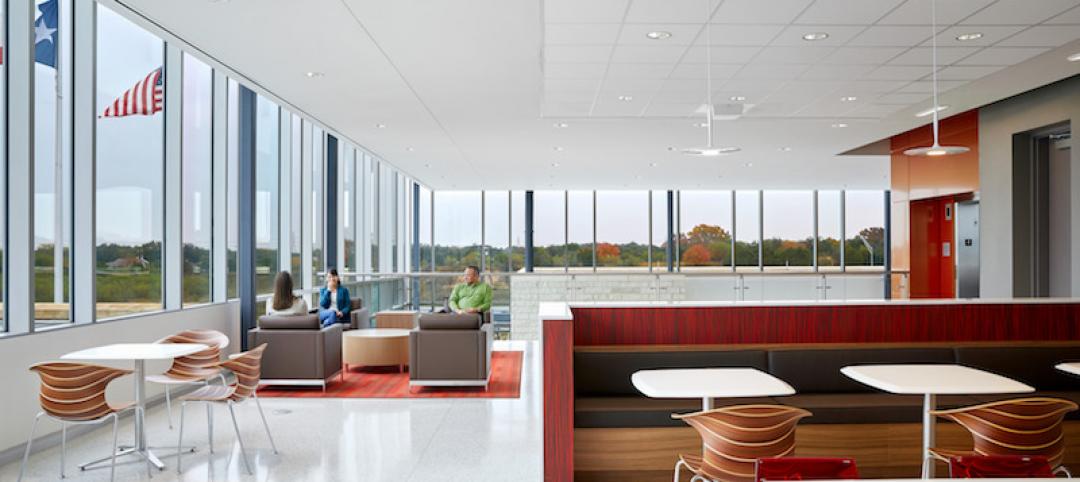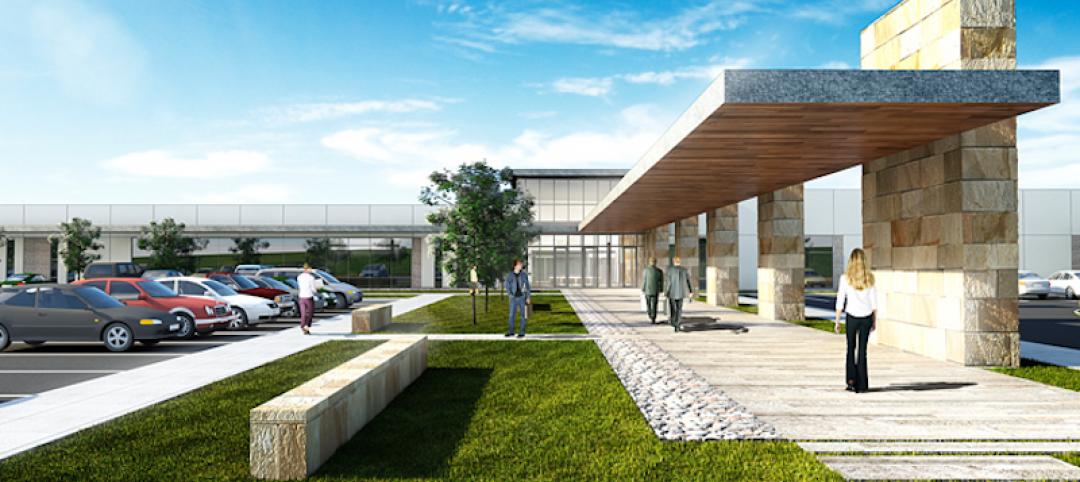Data centers are being built at a rate that could see the number of facilities double in the next decade. Their huge energy needs, left unaddressed, will pose a threat to the positive steps the built environment takes toward reducing its carbon footprint.
Toronto-based WZMH Architects has come up with a concept to harness “wasted energy” from data centers by diverting it to residences and commercial buildings that are located near the data center to form a direct current microgrid-based community.
The firm’s Innovation Lab has been conducting regular workshops on this topic with Ryerson University. And while WZMH hasn’t reached a proof-of-concept stage yet, “it wasn’t meant to,” says Zenon Radewych, a Principal with the firm. He believes, however, that it’s only a matter of time before a microgrid community is created.
“We’ve been living in a low-voltage DC [direct current] world for a long time,” he explains. The goal would be to build out the direct-current infrastructure and “push AC [alternating current] as far back as possible.” Radewych notes that DC is more compatible to green products like solar and wind, as well as to Internet of Things devices.
Here’s how the concept would work:
- Data center generators are tested monthly, but the energy from those tests isn’t used to support the facility’s electricity requirements, so it’s being wasted;
- Using DC microgrid technology and a battery storage system, the wasted energy from data centers could be harnessed to power nearby buildings;
- Buildings constructed around data centers would benefit from a free, reliable, and self-sustaining energy source. WZMH research estimates that in a data center with eight three-megawatt diesel generators that are tested for one hour per month, a DC microgrid can create energy equivalent to one day of power per week for a residential building with 125 units.
The microgrid—a localized network of electric loads and power sources—could function independently or in conjunction with a larger grid system. In WZMH’s concept, the microgrid would be an alternative power system in the building whose equipment could be energized by various energy-generating sources.
WZMH envisions the microgrid community with battery storage systems that, along with renewable energy sources and access to recycled energy from the data center, comprise the power plant for the co-located buildings within the community.
Radewych says that data centers have only scratched the surface when it comes to lowering their energy consumption. He also speculates that the data centers built nearer to residential and commercial properties would probably need to be constructed vertically because of land availability.
Related Stories
Data Centers | Feb 22, 2018
Demand for ‘hyperscale’ data centers continues to grow; U.S. leads the way
The number of so-called “hyperscale” data centers worldwide surpassed 390 at the end of 2017, with 69 more facilities in the works, according to Synergy Research Group.
Giants 400 | Oct 16, 2017
Data center market forecast: Clearly cloudy
Look for mission-critical construction to double in the next few years.
Data Centers | Oct 13, 2017
Top 35 data center construction firms
Turner Construction Co., Holder Construction, and DPR Constrcution top BD+C’s ranking of the nation’s largest data center sector contractors and construction management firms, as reported in the 2017 Giants 300 Report.
Giants 400 | Oct 12, 2017
Top 30 data center engineering firms
Syska Hennessy Group, AECOM, and Morrison Hershfield top BD+C’s ranking of the nation’s largest data center sector engineering and EA firms, as reported in the 2017 Giants 300 Report.
Giants 400 | Oct 11, 2017
Top 25 data center architecture firms
Jacobs, Corgan, and Gensler top BD+C’s ranking of the nation’s largest data center sector architecture and AE firms, as reported in the 2017 Giants 300 Report.
Data Centers | Aug 28, 2017
Do AEC firms have the wattage to meet the demands of a charged-up data center sector?
As construction and leasing surge, one big contractor worries about his industry’s talent shortage.
Data Centers | Aug 16, 2017
The world’s largest data center is being built 140 miles north of the Arctic Circle
The 600,000-sm facility will be on a secure property surrounded by a moat.
Healthcare Facilities | Jul 25, 2017
Healthcare technology: Preparing for the world of tomorrow
This article outlines the current data center landscape in the healthcare sector, industry trends, and challenges and opportunities new technologies present to the healthcare space.
Data Centers | Jul 21, 2017
Operational wellness was an objective for a new 911 call center near San Antonio
The Operations Center consolidates activities that previously were being handled at 25 locations.
Data Centers | Oct 14, 2016
Where data centers meet design
As technology continues to evolve, we have to simultaneously adapt and help our clients think beyond the short term, writes Gensler's Martin Gollwitzer.


